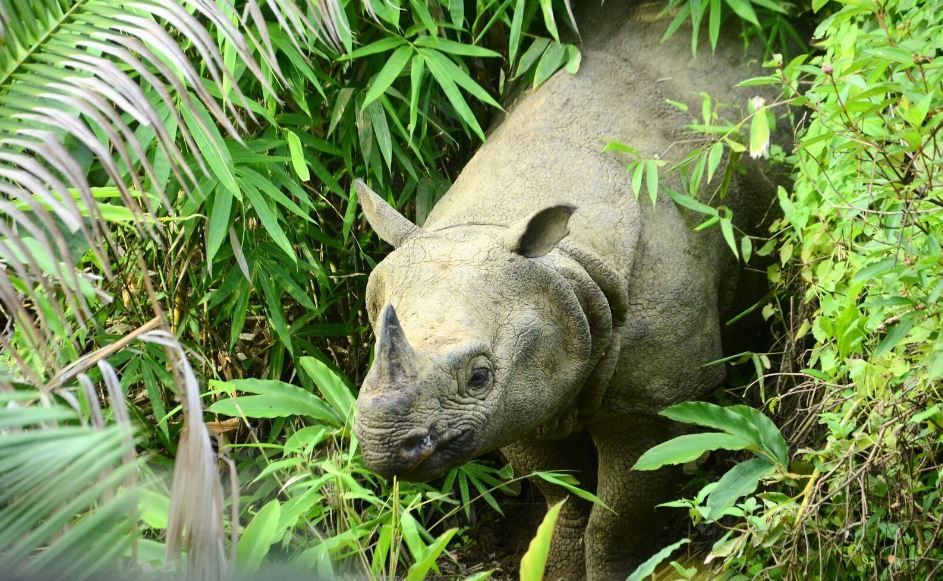
Javan rhinos used to roam widely throughout southeastern Asia, but poaching and habitat loss has reduced their numbers and range immensely. Today, they are only found in Ujung Kulon National Park, on the Indonesian island of Java. New research suggests they may be even more vulnerable to extinction than thought.
In the largest survey to date, researchers placed motion-activated cameras at nearly 200 locations throughout the park. After analyzing the large amount of video collected, they determined that only 62 Javan rhinos remain in the wild. These few live in low-lying areas that could be inundated by a tsunami, researchers write in a study describing their findings, published in the journal Conservation Letters .
By virtue of their location, such an event is likely in the not-too-distant future; The rhinos happen to live in a tectonically and volcanically active neighborhood. Just to the south of Java, the Australian plate slides beneath the southeastern corner of the Eurasian plate, creating a deep trough called the Javan (or Sunda) trench. This area is prone to earthquakes, like the one that created the devastating 2004 Indian Ocean tsunami. Researchers calculate that if the same size wave hit western Java, which could've happened if the tsunami occurred slightly to the southeast, it would "have put most, if not all, rhinos at risk from drowning," write the authors.
And a tsunami of this size—reaching a maximum "run-up" of 48 meters (155 feet) above sea level—would not be necessary to cause serious damage. The researchers conclude that a tsunami that made it to 10 meters, or 33 feet, above sea level would threaten 80 percent of the rhinos' territory. Such a tsunami will probably occur in the next 100 years, says corresponding author Brian Gerber, a postdoctoral researcher at Colorado State University.
The park also happens to sit about 50 miles from one of the world's most fearsome volcanoes: Anak Krakatoa. It is the "offspring" of the Krakatoa volcano which erupted in 1883, the most cataclysmic in modern history, the reverberations of which were felt around the world. Anak Kratoa, which means "childs of Krakatoa," has been growing from the destroyed remnants of this volcanic island ever since. If it erupts before 2040 scientists estimate it could create tsunamis that reach up to nearly 70 feet above sea level. If it erupts after then, the waves could rise to heights of almost 100 feet.
For this reason, a second population of Javan rhinos needs to be established to increase the likelihood of their survival, Gerber says. It also underscores the importance of protecting the animals from being poached for their horns, which are incorrectly thought to have medicinal value. The rhino horn trade is responsible for the depletion of rhinos around the world, including the mainland subspecies of the Javan rhino, the last of which was poached in Vietnam in 2009.
The "study provides good momentum for our efforts to save the Javan rhino, considering that we are racing against time," says Arnold Sitompul, conservation director of World Wildlife Fund-Indonesia, who wasn't involved in the paper, in a statement. "We need the social and political will to move things forward and establish additional populations."
Uncommon Knowledge
Newsweek is committed to challenging conventional wisdom and finding connections in the search for common ground.
Newsweek is committed to challenging conventional wisdom and finding connections in the search for common ground.
About the writer
Douglas Main is a journalist who lives in New York City and whose writing has appeared in the New York ... Read more
To read how Newsweek uses AI as a newsroom tool, Click here.








